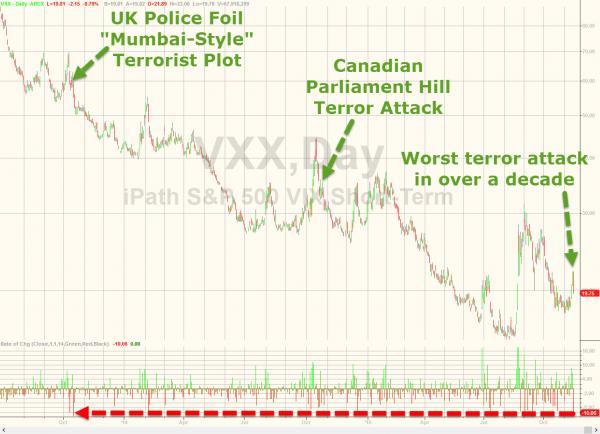Correlation is, of course, not causation; but following our earlier coincidental chart on the extraordinary drop (and recent rise) in VIX today – after the worst terrorist attack in a decade…

We found some additionally ‘odd’ research by ABCEconomics.com,showing that this is not the first time that VIX has ‘predicted’ a terrorist attack…
Earlier today we published an analysis by Nik Crepaldi highlighting the fact that the VIX Index rose in the week preceding the Paris Attacks. Hereafter I extended the analysis to cover some of the most notable Al-Qaeda/ISIS-related terrorist acts since 9/11.
But firstly, let us briefly define the VIX Index. VIX is a trademarked ticker symbol for the CBOE Volatility Index, a popular measure of the implied volatility of S&P 500 index options; the VIX is calculated by the Chicago Board Options Exchange (CBOE). Often referred to as the fear index or the fear gauge, the VIX represents one measure of the market’s expectation of stock market volatility over the next 30-day period.
Observed events
Results
As previously noted, VIX is intended to be a forward-looking index, predominantly focusing on US stocks. However, the author of this research observed the following:





Preliminary conclusions













Leave A Comment